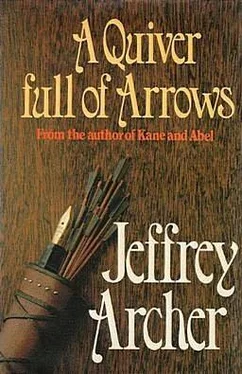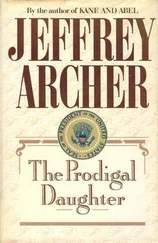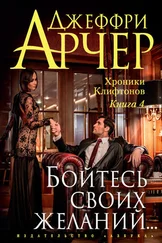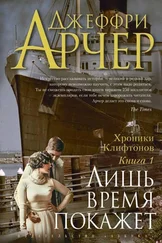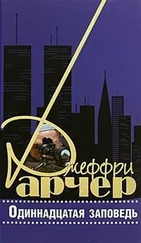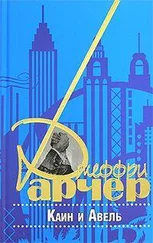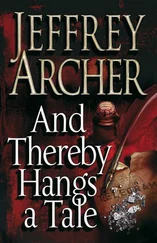Philippa clambered into the back seat and did not speak to him again before falling asleep. William donned his hat, scarf and gloves, crossed his arms for warmth, and touched the tangled red mane of Philippa’s hair as she slept. He then took off his coat and placed it so that it covered her.
Philippa woke first, a little after six, and groaned as she tried to stretch her aching limbs. She then shook William awake to ask him why his father hadn’t been considerate enough to buy him a car with a comfortable back seat.
“But this is the niftiest thing going,” said William, gingerly kneading his neck muscles before putting his coat back on.
“But it isn’t going, and won’t without petrol,” she replied, getting out of the car to stretch her legs.
“But I only let it run out for one reason,” said William, following her to the front of the car.
Philippa waited for a feeble punch line and was not disappointed.
“My father told me if I spent the night with a barmaid then I should simply order an extra pint of beer, but if I spent the night with the vicar’s daughter, I would have to marry her.”
Philippa laughed. William, tired, unshaven, and encumbered by his heavy coat, struggled to get down on one knee.
“What are you doing, William?”
“What do you think I’m doing, you silly woman. I am going to ask you to marry me.”
“An invitation I am happy to decline, William. If I accepted such a proposal I might end up spending the rest of my life stranded on the road between Oxford and Stratford.”
“Will you marry me if I win the Charles Oldham?”
“As there is absolutely no fear of that happening I can safely say, yes. Now do get off your knee, William, before someone mistakes you for a straying stork.”
The first bus arrived at five past seven that Saturday morning and took Philippa and William back to Oxford. Philippa went to her rooms for a long hot bath while William filled a petrol can and returned to his deserted MG. Having completed the task, he drove straight to Somerville and once again asked if he could see Miss Jameson. She came down a few minutes later.
“What, you again?” she said. “Am I not in enough trouble already?”
“Why so?”
“Because I was out after midnight, unaccompanied.”
“You were accompanied.”
“Yes, and that’s what’s worrying them.”
“Did you tell them we spent the night together?”
“No, I did not. I don’t mind our contemporaries thinking I’m promiscuous, but I have strong objections to their believing that I have no taste. Now kindly go away, as I am contemplating the horror of your winning the Charles Oldham and my having to spend the rest of my life with you.”
“You know I’m bound to win, so why don’t you come live with me now?”
“I realize that it has become fashionable to sleep with just anyone nowadays, William, but if this is to be my last weekend of freedom I intend to savor it, especially as I may have to consider committing suicide.”
“I love you.”
“For the last time, William, go away. And if you haven’t won the Charles Oldham don’t ever show your face in Somerville again.”
William left, desperate to know the result of the prize essay competition. Had he realized how much Philippa wanted him to win, he might have slept that night.
On Monday morning they both arrived early in the Examination Schools and stood waiting impatiently without speaking to each other, jostled by the other undergraduates of their year who had also been entered for the prize. On the stroke of ten the chairman of the examiners, in full academic dress, walking at tortoise-like pace, arrived in the great hall and with a considerable pretense at indifference pinned a notice to the board. All the undergraduates who had entered for the prize rushed forward except for William and Philippa who stood alone, aware that it was now too late to influence a result they were both dreading.
A girl shot out from the melee around the notice board and ran over to Philippa.
“Well done, Phil. You’ve won.”
Tears came to Philippa’s eyes as she turned toward William.
“May I add my congratulations,” he said quickly. “You obviously deserved the prize.”
“I wanted to say something to you on Saturday.”
“You did, you said if I lost I must never show my face in Somerville again.”
“No, I wanted to say: I do love nothing in the world so well as you; is not that strange?”
He looked at her silently for a long moment. It was impossible to improve upon Beatrice’s reply.
“As strange as the thing I know not,” he said softly.
A college friend slapped him on the shoulder, took his hand and shook it vigorously. Proxime accessit was obviously impressive in some people’s eyes, if not in William’s.
“Well done, William.”
“Second place is not worthy of praise,” said William disdainfully.
“But you won, Billy boy.”
Philippa and William stared at each other.
“What do you mean?” said William.
“Exactly what I said. You’ve won the Charles Oldham.”
Philippa and William ran to the board and studied the notice.
Charles Oldham Memorial Prize
The examiners felt unable on this occasion to award the prize to one person and have therefore decided that it should be shared by
They gazed at the notice board in silence for some moments. Finally, Philippa bit her lip and said in a small voice:
“Well, you didn’t do too badly, considering the competition. I’m prepared to honor my undertaking but by this light I take thee for pity.”
William needed no prompting. “I would not deny you, but by this good day I yield upon great persuasion, for I was told you were in a consumption.”
And to the delight of their peers and the amazement of the retreating don, they embraced under the notice board.
Rumor had it that from that moment on they were never apart for more than a few hours.
The marriage took place a month later in Philippa’s family church at Brockenhurst. “Well, when you think about it,” said William’s roommate, “who else could she have married?” The contentious couple started their honeymoon in Athens arguing about the relative significance of Doric and Ionic architecture, of which neither knew any more than they had covertly conned from a half-crown tourist guide. They sailed on to Istanbul, where William prostrated himself at the front of every mosque he could find while Philippa stood on her own at the back fuming at the Turks’ treatment of women.
“The Turks are a shrewd race,” declared William, “so quick to understand real values.”
“Then why don’t you embrace the Moslem religion, William, and I need be in your presence only once a year.”
“The misfortune of birth, a misplaced loyalty and the signing of an unfortunate contract dictate that I spend the rest of my life with you.”
Back at Oxford, with junior research fellowships at their respective colleges, they settled down to serious creative work. William embarked upon a massive study of word usage in Marlowe and, in his spare moments, taught himself statistics to assist his findings. Philippa chose as her subject the influence of the Reformation on seventeenth-century English writers and was soon drawn beyond literature into art and music. She bought herself a spinet and took to playing Dowland and Gibbons in the evening.
“For Christ’s sake,” said William, exasperated by the tinny sound, “you won’t deduce their religious convictions from their key signatures.”
“More informative than ifs and ands, my dear,” she said, imperturbably, “and at night so much more relaxing than pots and pans.”
Three years later, with well-received D. Phils, they moved on, inexorably in tandem, to college teaching fellowships. As the long shadow of fascism fell across Europe, they read, wrote, criticized and coached by quiet firesides in unchanging quadrangles.
Читать дальше
